I am trying to generate 5000 by 5000 random number matrix. Here is what I do with MATLAB:
for i = 1:100
rand(5000)
end
And here is what I do in C++:
#include <iostream>
#include <stdlib.h>
#include <time.h>
#include <ctime>
using namespace std;
int main(){
int N = 5000;
double ** A = new double*[N];
for (int i=0;i<N;i++)
A[i] = new double[N];
srand(time(NULL));
clock_t start = clock();
for (int k=0;k<100;k++){
for (int i=0;i<N;i++){
for (int j=0;j<N;j++){
A[i][j] = rand();
}
}
}
cout << "T="<< (clock()-start)/(double)(CLOCKS_PER_SEC/1000)<< "ms " << endl;
}
MATLAB takes around 38 seconds while C++ takes around 90 seconds. In another question, people executed the same code and got same speeds for both C++ and MATLAB.
I am using visual C++ with the following optimizations

I would like to learn what I am missing here? Thank you for all the help.
EDIT: Here is the key thing though... Why MATLAB is faster than C++ in creating random numbers?
In this question, people gave me answers where their C++ speeds are same as MATLAB. When I use the same code I get way worse speeds and I am trying to understand why.